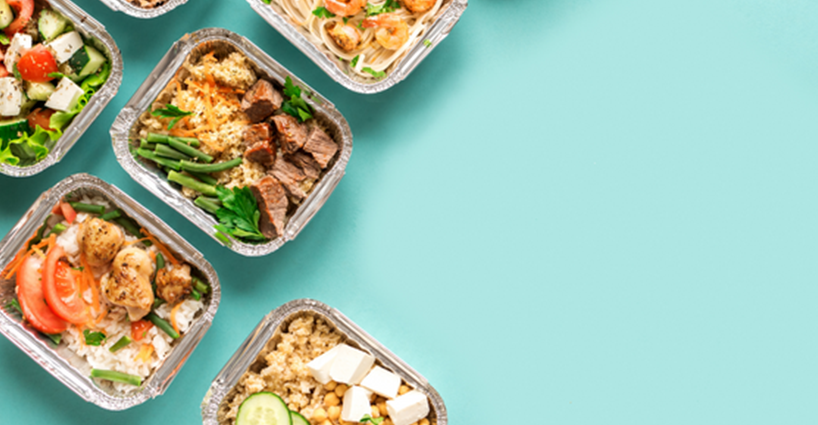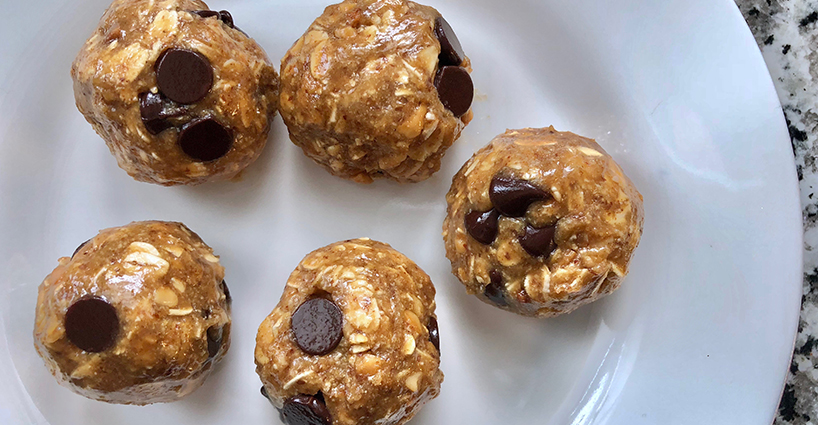If you’ve downloaded our Nutrition Blueprint, you may fall in the population of clients who’ve been struck (and likely doubt) the number of carbohydrates assigned to each category. Even in the Fat Loss Blueprint, carbohydrate intake is moderate, which can be confusing amidst today’s high fat/low carb trend. “Eat fat to lose fat.” “Carbs make you gain weight.” “Carbs are basically Satan incarnate.” [Eye roll, eye roll, eye roll again].
It’s human nature to identify a scapegoat, but enough is enough. Carbohydrates have been inappropriately stigmatized for far too long. Fortunately, we’re seeing a slight downtick in the (irrational) carb-phobia that’s been highly pervasive throughout today’s diet culture. But the fear is still very real and accepting that carbs are NOT the enemy proves difficult for those who have been seduced by trends such as keto, paleo, gluten-free, you name it. Carbs don’t lead to weight gain. Eating in a caloric surplus does.
“But my friend lost 10 pounds in a month on Keto”
Well that’s cool…but the likelihood of your friend gaining it all back (and then some) is high. Low carb/high fat diets can play a positive role in treating medical conditions such as epilepsy, but that’s not what we’re talking about here. The large majority of people that rave about low carb diets promote them as a quick weight loss strategy. No one ever initiates their weight loss-driven keto journey under the guise that they’re going to lose a steady 0.5 lbs a week. Nope. Usually, it’s a matter of Sally hearing that Karen dropped 15 pounds in a month, so Sally wants in.
A few things to dissect here:
First of all…fat loss comes down to pure calories in vs. calories out. Period. So keto wasn’t the primary driver of Karen’s weight loss, being in a caloric deficit was.
Second of all, Karen did NOT lose 15 lbs. of fat in a month. For one, carboHYDRATES are a hydrophilic macronutrient – meaning they bind to water and thus lead to water retention. By removing carbs from her diet, Karen lost a ton of water weight (which is basically futile in the scope of meaningful fat loss). So when low carb dieters boast about how much weight they lost by day 5, don’t be so quick to jump on the bandwagon. A substantial amount (if not all) of that weight loss was water. The minute Karen says “to hell with it” and orders a juicy, carby, sodium-rich cheeseburger, that water weight will come right back.
Next, a diet comprised of mostly fat and little to no carbs is likely to result in muscle loss. So…odds are, Karen’s 15 lb. loss is also a function of losing some muscle mass. Water weight aside, remember how we said she’s probably going to gain the weight back (and then some)? Muscle mass directly impacts our metabolism and burns much more energy than fat, so you can see how LOSING muscle can be problematic from a calorie-burning standpoint. In addition to losing muscle, Karen has also lowered her basal metabolic rate in the process, meaning she burns LESS calories than she did before. It’s now increasingly easy for her to eat past her metabolic baseline in a caloric surplus, making rapid weight regain frustratingly effortless.
Low carb diets as THE weight loss strategy is flimsy, in our not-so-subtle opinion. They’re generally put into motion as a quick fix and rarely promote sustainability. Not to mention, living life in fear of a freaking sandwich is no way to live, friend. Unless you’re straight up allergic to certain foods, categorizing foods into “yes” and “no” lists fosters a negative relationship with food, promotes an unsustainable dieting approach, and often triggers yo-yo restrict/binge behaviors. We’re not about that life.
The Nutrition Blueprint: Carbs for Performance
Something important to point out in line with the release of our Nutrition Blueprint is this: We are an athletic training program and are fueling our blueprint users to support performance. Remember: the Blueprint is specifically designed for the dedicated client that trains with us 4x/week.
With that, we deem carb intake as a key player when it comes to fueling our MADones – regardless of the blueprint he/she follows (Fat Loss, Maintenance, or Athletic Gain). MADabolic is a glycolytic training modality, meaning your body relies on muscle glycogen to fuel your workouts. How is muscle glycogen primarily sourced? You guessed it – carbs. Short story: if you’re not consuming enough carbs to replenish glycogen stores and support your training, you’re going to feel (and probably perform) like shit on the floor.
Glycogen storage is also the reason you don’t see any “rest day” or “low carb” macros in the MADabolic Nutrition Blueprint. Glycogen replenishment can take anywhere from 24 to 72 hours, so cutting carbs on days you don’t train is unnecessary. Conversely, maintaining a steady carb intake – even on recovery days – will only set you up for greater performance when you get back on the training floor!
You’ll notice that even our Fat Loss Blueprint suggests a higher carb intake than you’d probably expect. At the end of the day – and we’ll confidently argue this until we’re blue in the face – fat loss comes down to being in a caloric deficit. Doesn’t matter how we create that deficit. So if carbs play such an important role in preserving/building muscle mass, burning fat, sourcing energy, regulating hormones and thyroid function (the list goes on)…then why would we slash them?
Whether you’re looking to cut fat, maintain body composition or put on mass while performing like a badass athlete and feeling good all around, check out our Nutrition Blueprint and enjoy the damn potatoes.



